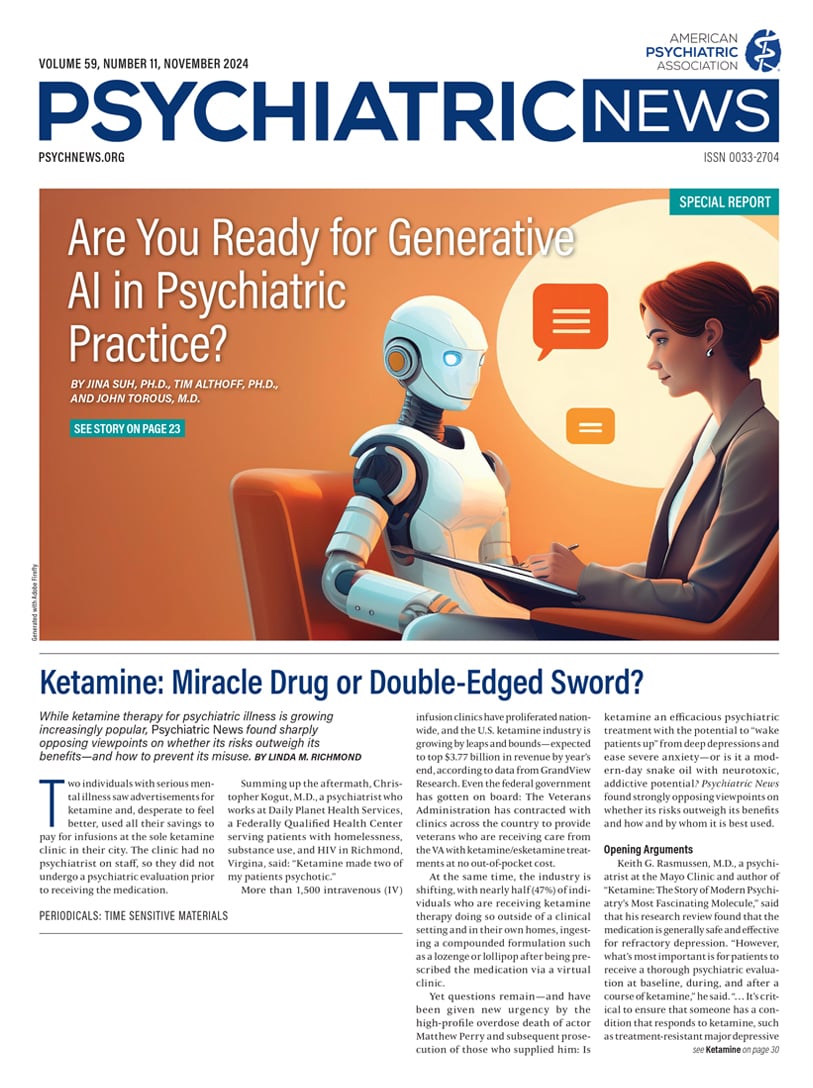Treating depression with first-line antidepressants may help lower the risk of falls and fall-related injuries in older patients with depression, according to a
study in
JAMA Network Open.
“Although there have been concerns about the risk of falls and related injuries associated with antidepressant treatments in older adults, our findings suggest that standard first-line depression treatments do not exacerbate risk, indicating their safety for initiation in older adults newly diagnosed with depression,” wrote Wei-Hsuan Lo-Ciganic, Ph.D., M.S., M.S.Pharm., a professor of medicine at the University of Pittsburgh Center for Research on Health Care, and colleagues. “However, it remains crucial for clinicians to consider the full spectrum of potential adverse effects and customize treatment plans to ensure a balance between effectiveness and risks.”
Lo-Ciganic and colleagues examined claims data amassed from 101,953 Medicare beneficiaries age 65 or older who received a diagnosis of depression in 2017 or 2018. The researchers followed the patients for one year from the date of diagnosis, until their earliest fall and related injury after their depression diagnosis, or until the patients died, entered a hospice or skilled nursing facility, changed to Medicare Advantage, switched or combined their treatments with other treatments, or discontinued treatment—whichever came first. Falls and related injuries included outcomes such as bone fractures, sprains, strains, dislocations, and superficial skin injuries.
Overall, 45.2% of the individuals did not receive any treatment for their depression, while 14.6% received psychotherapy. Among those who were prescribed first-line antidepressants, 9.2% took sertraline, 9% took escitalopram, 4.7% took citalopram, 3.8% took mirtazapine, 3.1% took duloxetine, 2.9% took trazodone, 2.8% took fluoxetine, 2.3% took bupropion, 1.4% took paroxetine, and 1% took venlafaxine. To recognize that real-world clinical practice may not involve immediate treatment, the researchers allowed for a 90-day grace period for treatment initiation following depression diagnosis.
Compared with adults receiving no treatment, those receiving psychotherapy did not demonstrate any increased or decreased risk of falls and related injuries. However, compared with no treatment, taking first-line antidepressants was associated with a lower risk of falls as follows:
•
Bupropion and paroxetine: 26% lower risk
•
Venlafaxine: 25% lower risk
•
Duloxetine, fluoxetine, mirtazapine, and trazodone: 22% lower risk
•
Citalopram and sertraline: 19% lower risk
•
Escitalopram: 17% lower risk
The results contradict those of previous studies that suggested antidepressants may increase the risk of falls and related injuries because of anticholinergic side effects such as orthostatic hypotension, sedation, and syncope.
“Previous approaches may be limited by not accounting for the possibility that the falls could be due to the underlying depression itself, rather than the medication,” Lo-Ciganic told Psychiatric News. “Some of the earlier studies may have a bias because they did not account for the fact that some patients [diagnosed with depression] had not yet started taking antidepressants at the time of their fall.”
When the researchers conducted a secondary analysis that only included adults who initiated treatment within 30 days of diagnosis, antidepressant use was associated with an even greater reduction in the risk of falls and related injuries, highlighting the potential value of early treatment.
The researchers noted that falls and related injuries that did not receive medical attention were difficult to capture in the analysis, so their actual incidence may be underestimated. In addition, factors they did not measure, such as lifestyle and environment, may have affected outcomes. The researchers also did not investigate the impact of adding other therapies or switching to another antidepressant or psychotherapy, nor did they examine the dose-response relationship.
The researchers did not report any funding from outside their respective institutions. ■

